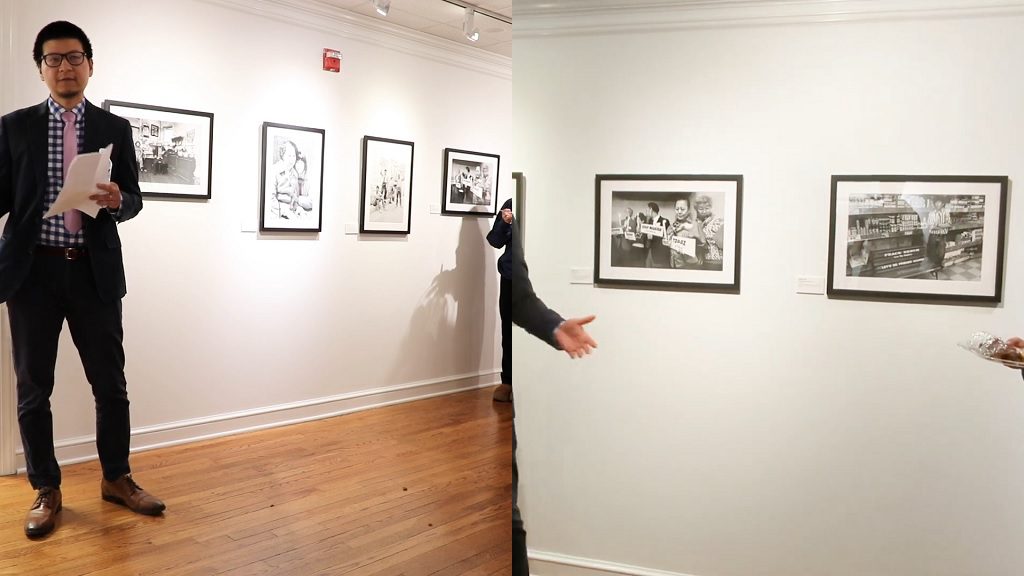Duke University is showcasing Corky Lee’s photos that depict more than 50 years of Asian American life and social justice movements.
Key points:
- Duke University’s Asian/Pacific Studies Institute in Durham, North Carolina, opened the exhibition at the John Hope Franklin Center Main Gallery on April 12, ahead of Asian American Native Hawaiian Pacific Islander Heritage Month, which began on May 1.
- The exhibition, titled “Corky Lee’s Asian America: 50 Years of Photographic Justice,” will be at the gallery from April through June.
The details:
- Mae Ngai, a historian who was an editor of the recently published book “Corky Lee’s Asian America: 50 Years of Photographic Justice,” discussed Lee’s life and work with Eileen Chow, a professor of Asian and Middle Eastern studies at Duke University.
- Ngai described Lee as the “undisputed, unofficial Asian American photographer laureate,” and shared that the late photographer observed significant changes in Asian American communities, from the start of the Asian American movement in the 1970s to Stop Asian Hate during the COVID-19 pandemic.
- Lee’s photos captured both everyday moments and notable occasions, including his famous picture of Sikh community members draped in American flags at a post-9/11 event in New York’s Central Park.
- Lee passed away at the age of 73 on Jan. 27, 2021, due to COVID-19 complications while working on his book project, which he began in 2011.
About Corky Lee:
- Born on Sept. 5, 1947, in Hollis, New York, Lee attended and graduated from Queens College, where he studied history. He was a regular presence at Asian American events in the New York metropolitan area, using photography to challenge social and racial injustices.
- Lee’s career in photojournalism took off after his photo of the violent beating of activist Peter Yew was featured on the front page of the evening edition of the New York Post on the same night it happened on April 26, 1975.
- Lee was honored with a Google Doodle during the AANHPI Heritage Month in May 2023.



